Afghanistan: One man's memories of Camp Bastion
- Published
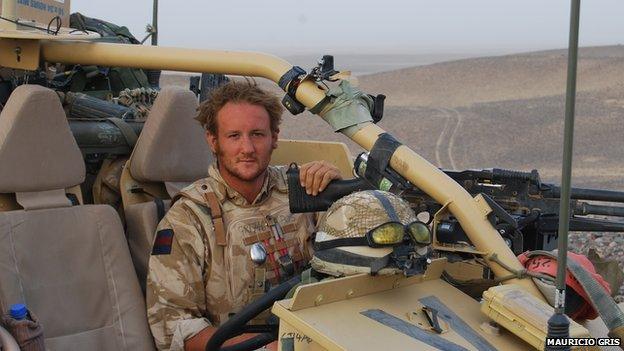
Mauricio sitting in his Jackal vehicle during his first tour in 2008.
British combat operations in Afghanistan have ended after the final UK military base was handed over to Afghan security forces.
From 2006, Camp Bastion became the large, sprawling, temporary home for thousands of British troops.
At its height, it was the size of Reading - a bustling community in the middle of the Afghan desert, but now the Union Flag has been lowered.
So what exactly was it like to live there?
Mauricio Gris, who served seven years in the British Army, gave Newsbeat access to his personal photo collection from his time in Afghanistan.
He did three tours of the country, in 2008, 2009 and 2013.
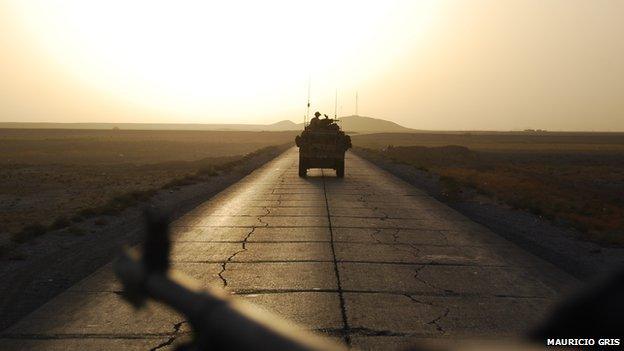
Returning back to Bastion on Highway One.
Arrival at Camp Bastion
"The photos are from my first tour of Afghanistan in 2008. I was a reconnaissance troop leader with the Household Cavalry Regiment, D Squadron.
"As part of that we would travel the length and breadth of Helmand, finding the Taliban and intercepting drug running.
"We were assigned a bed space on arrival. We had two to three metres to make our own and fill it with creature comforts.
"There were eight people in our tent but to be honest ours was a lot more spacious than some of the others.
"It wasn't really as comfortable as it could have been. There was a bit of electricity for laptops but no internet."
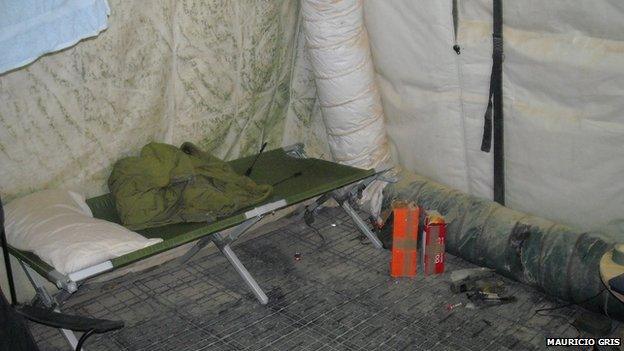
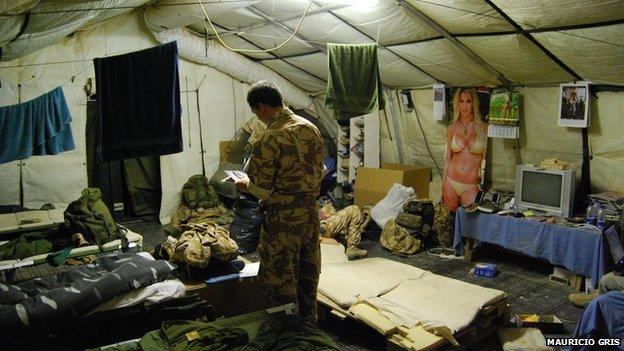
The tent Mauricio shared with his colleagues.
"We used to prepare our weapons and vehicles before leaving the gates of Bastion.
"This photo shows our journey heading in and out of Camp Bastion. The shot is taken from the passenger side of my vehicle on our first mission out of the base.
"What's remarkable is that ground and desert eventually became a kind of 'Bastion Two' as the base sprawled out."
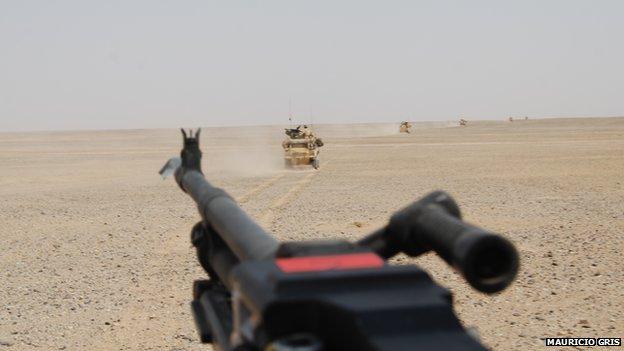
Heading out into the desert on his first mission.
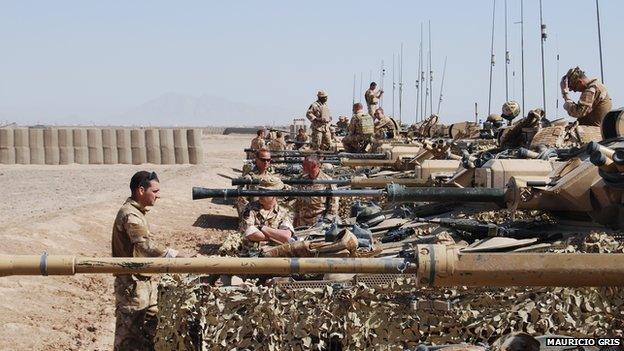
Soldiers preparing their weaponry before leaving Camp Bastion.
"Bastion was small when we arrived in 2008. Originally you could walk across it in five minutes.
"By the end, it took you 10 to 15 minutes to get across by car. There were even traffic wardens. It became a proper little town.
"When we started out, our tent was on the edge of Bastion. There was literally a wire fence and then the desert. It felt like we were in the middle of warfare.
"For my final tour, my tent was in the centre of this 'town'.
"I loved hanging around with the soldiers. They had an incredible sense of humour. You just had to make sure you weren't the guy who fell asleep when marker pens were flying about otherwise you'd end up with an extra eyebrow.
"Of course there was poignancy, especially during the remembrance services. The sound of the Last Post used to ram home the dangers of the job."
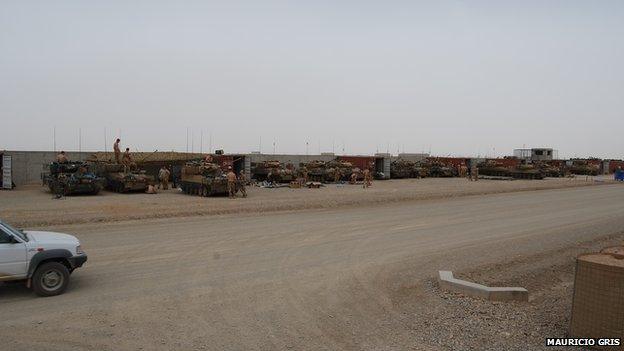
Vehicles being prepared before heading out on a mission.
Mauricio Gris went on to be a Combat Camera Team Producer with the British Army.
Follow @BBCNewsbeat, external on Twitter, BBCNewsbeat, external on Instagram and Radio1Newsbeat, external on YouTube